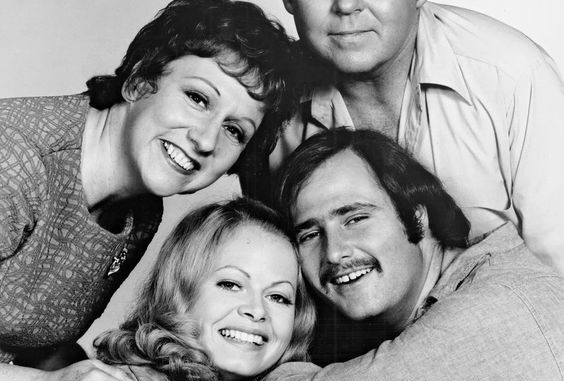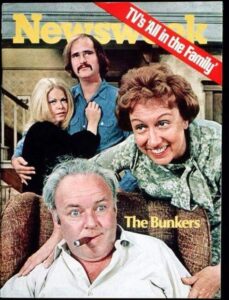
Not to say it can’t or won’t happen again, but given the current complexity of the television industry, it’s hard to imagine a sitcom completely revolutionizing the medium. Norman Lear made a career out of pushing small-screen comedy in new directions, though, with All in the Family being one of his greatest achievements.
The sitcom had been a staple of TV for decades by the time the first episode premiered in January 1971, but when the show aired its finale after nine seasons in April 1978, the landscape was completely different and inarguably better for it. Not only one of the most-watched and awards-laden shows of its era, All in the Family was a genuine revolutionary.
Carroll O’Connor’s Archie Bunker evolved into an icon of the sitcom, but at his heart, he was a bigot who couldn’t wrap his head around the idea of embracing change. He shares a roof with dutiful housewife Edith, college-aged daughter Edith, and her long-haired liberal husband Mike Stivic. On the surface, disparate personalities living together was as formulaic as it gets, but it was the content that elevated the series to a pantheon of its own.
The network had an inkling of what it was getting itself in for, with the first episode prefaced by a disclaimer from CBS that explained how All in the Family “seeks to throw a humorous spotlight on our frailties, prejudices, and concerns. By making them a source of laughter we hope to show – in a mature fashion – just absurd how they are.”

All in the Family was a trailblazer, in which it used its huge appeal and wide reach to not only entertain viewers, but incorporated the socio-economic and political realities of the time into its storylines. Sitcoms were always quaint, safe, and never close to controversial, but Lear’s creation inspired multiple generations of creatives and showrunners to use TV as a means to spotlight resonant themes that reflect the mood of the nation.
Discussions on racism, the thorny political climate of the United States, women’s rights and feminism, homosexuality, the lingering effects of the Vietnam War all took place between the characters and the situations they found themselves in, injecting their light-hearted escapades with heft and resonance that simply wasn’t part of primetime storytelling previously.
The world was changing, the Bunker family were changing as a result, and they went on that journey in front of a captive audience, who could see themselves reflected in the characters. There was always a clear distinction between real life and the lives lived by fictional figures on-screen, but All in the Family disregarded what had become convention in favor of adopting a more grounded and relatable approach. It was still a broad comedy at the end of the day, but it always made sure it carried an extra bite.